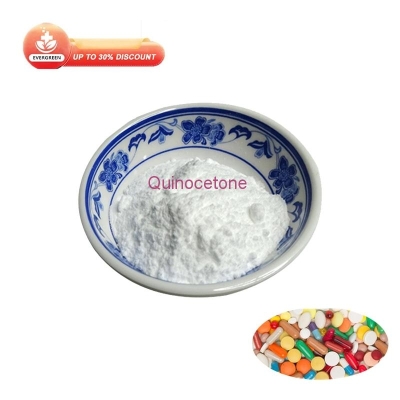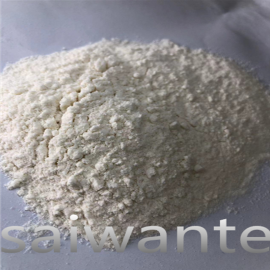-
Categories
-
Pharmaceutical Intermediates
-
Active Pharmaceutical Ingredients
-
Food Additives
- Industrial Coatings
- Agrochemicals
- Dyes and Pigments
- Surfactant
- Flavors and Fragrances
- Chemical Reagents
- Catalyst and Auxiliary
- Natural Products
- Inorganic Chemistry
-
Organic Chemistry
-
Biochemical Engineering
- Analytical Chemistry
- Cosmetic Ingredient
-
Pharmaceutical Intermediates
Promotion
ECHEMI Mall
Wholesale
Weekly Price
Exhibition
News
-
Trade Service
With the proposal of "accelerating the formation of a new development pattern with domestic circulation as the main body and domestic and international dual circulation promoting each other", the "14th Five-Year Plan" provides new directions and new ideas
for China's pharmaceutical industry.
Through the smooth domestic circulation, it attracts global resources and elements, and expands a broader space
for the integrated development of multinational pharmaceutical companies and local enterprises.
In the past 2022, Merck invested tens of billions of dollars to win a number of global rights in ADCs of Kelun Pharmaceutical's subsidiary, and participated in a new round of financing for Kelun Patello; Sanofi invested 4 billion yuan in Innovent Biologics; AstraZeneca established Ditze Pharma and established AstraZeneca China regional headquarters in Qingdao; Roche invested nearly RMB 300 million to establish the Roche China Accelerator to promote innovative cooperation with local start-ups.
.
.
From "trading" to "seeking cooperation", multinational pharmaceutical companies are using various forms to deepen their cultivation of the Chinese market, and local enterprises are also further moving towards internationalization in this wave of industrial integration
.
The complex international situation has also made China's local pharmaceutical companies reap the joy of high-quality development, but the journey of global integration and development is full of variables: BeiGene, Hutchison Pharmaceutical and other companies have been included in the "pre-delisting list", BGI Genomics has been included in the list of military-related enterprises (CMC), the M&A transaction between Kaileying and Snapdragon has "failed", and Zhongsheng Pharmaceutical's acquisition of F-star
Therapeutics was "cared for" by the Committee on Foreign Investment in the United States (CFIUS).
.
.
Success or failure allows us to see the opportunities and challenges
of the international market.
The rapid rise of local innovation forces, whether it is license-out transactions "borrowing ships to go to sea", holding hands with multinational giants for win-win cooperation; Or directly "sail away", with products and capital to consolidate the foundation of internationalization, the integration of "dual circulation" in the industrial side is accelerating
.
01 Multinational pharmaceutical companies join hands with innovative drugs independently developed by local pharmaceutical companies
01 Multinational pharmaceutical companies join hands with innovative drugs independently developed by local pharmaceutical companiesAfter decades of honing and accumulation, China has grown into the world's second largest pharmaceutical market
.
According to Frost & Sullivan's analysis, the size of China's pharmaceutical market increased from 1,430.
4 billion yuan in 2017 to 1,591.
2 billion yuan in 2021, with a compound annual growth rate of 2.
7%.
In 2025, the scale of China's pharmaceutical market will further grow to 2,064.
5 billion yuan, and the proportion of innovative drugs will continue to increase to 68%.
Driven by policy dividends and market demand, multinational pharmaceutical companies have frequently started various cooperation with local enterprises and governments, accelerated the localization process, and created a new "circle of friends"
of the medical ecosystem.
In August 2022, Innovent Biologics, a Chinese innovative pharmaceutical company, announced a cooperation agreement with Sanofi, a multinational pharmaceutical company, for a number of projects totaling EUR 740 million, or approximately RMB
5.
1 billion.
Innovent and Sanofi will jointly explore the development of multiple cancer types in China to benefit more Chinese patients
.
This is another strategic cooperation
between Innovent and multinational pharmaceutical companies after cooperating with Eli Lilly and Roche.
The two companies will aim to accelerate the development and commercialization of Sanofi's core potential first-in-class oncology pipeline, including SAR408701 (tusamitamab), which is in clinical phase III
ravtansine; Anti-CEACAM5 antibody-drug conjugate) and SAR444245 in clinical phase II
(non-α-biased IL-2), exploring a series of clinical studies
on two drug candidates in combination with PD-1 brand dab (sindilimab injection).
In the past few years, multiple strategic alliances between multinational companies and local pharmaceutical companies have greatly accelerated the research and development and commercialization of domestic new drugs in the field of oncology
.
Following oncology, multinational pharmaceutical companies are also strengthening cooperation
with local companies in the field of diabetes, cardiovascular disease, metabolism and digestion and other major diseases in China.
In October 2022, Bayer announced that the National Medical Products Administration (NMPA) approved huadotgliptin tablets, the world's first innovative drug for diabetes, for use alone, or in combination with metformin hydrochloride when blood sugar control is poor, in combination with metformin hydrochloride, with diet and exercise to improve blood sugar control
in adult patients with type 2 diabetes.
Docgliatin tablets are a product cooperation between Bayer and Hua Medicine in the field of diabetes treatment, and are the first approved glucokinase activator (GKA) drugs
in the world.
As the state increases its support for biomedical industry innovation, Chinese enterprises have become a new force
in global biomedical innovation.
In the current wave of global industrial upgrading, China's innovation resources are becoming more and more important, and it has been able to match the positioning of
global R&D centers.
The R&D centers of multinational pharmaceutical companies in China have been upgraded
.
"Big hands" hold "small hands", innovation goes hand in hand
.
In October 2022, AstraZeneca announced the official opening of its Global R&D China Center in Shanghai, a comprehensive upgrade
of AstraZeneca's China Research Center.
Through independent research and development and external cooperation mode, the center will provide "Made in China" high-quality medical solutions
for global patients.
In 2021, Roche invested nearly RMB300 million to establish the Roche China Accelerator to promote innovation cooperation with local start-ups and create a healthcare innovation ecosystem
.
As of November 2022, 11 local start-ups have emerged as accelerator members from more than 220 applicants
.
At present, the existing member companies have reached 8 early-stage R&D cooperation with Roche China Innovation Center to jointly explore new scientific directions and technology platforms
.
Under the background of economic globalization and the high risk of pharmaceutical R&D projects, more and more multinational companies have implemented the strategy of mergers and acquisitions and strategic alliances that closely combine capital and technology, the core is to break the "barriers" of internal R&D and embrace the "open innovation" model
of global wisdom.
02 License OUT transactions are uninterrupted, and the international development of pharmaceuticals is helped
02 License OUT transactions are uninterrupted, and the international development of pharmaceuticals is helpedIn 2022, the most talked about keyword in the pharmaceutical industry may be "internationalization" in addition to "capital winter"
.
From the export of intermediates and APIs, to the export of characteristic APIs and preparations, to the overseas listing of innovative drugs independently developed and developed, the international development of China's pharmaceutical industry has made important achievements
in stages.
At present, there are two main modes for Chinese innovative pharmaceutical companies to go overseas: First, they go overseas
independently.
That is, Chinese pharmaceutical companies independently carry out clinical trials overseas, and then apply for marketing and sell them after approval, such as BeiGene's BTK inhibitor zebratinib
.
The second is to borrow "boats" to go to sea, including licenses
OUT, that is, Chinese pharmaceutical companies sell the overseas or global rights and interests of their products to overseas enterprises, and the overseas enterprises are responsible for subsequent clinical development, application for listing, production and sales
.
This is also the most commonly used "going overseas" method by Chinese enterprises
.
Since 2022, domestic innovative drug license-out (overseas rights and interests) transactions have continued, and with the help of license-out, it has become the most adopted "going overseas" method for Chinese innovative pharmaceutical companies
.
According to public data, there were only 10 license-out incidents of Chinese companies in 2016, and the disclosed transaction amount was only US$320 million
.
By 2021, there had been 53 license-out incidents involving Chinese companies, with a disclosed transaction value of US$14.
49 billion
.
In addition, a total of 28 license-out projects were reached in the first half of 2022, including 20 innovative drug/new technology transactions, with a total transaction value of US$5.
67 billion
.
As of December, the number of authorized innovative drugs in China has exceeded 140, of which the proportion of small molecules still accounts for half of the country, more than one-third of antibody drugs including monoclonal antibodies, dual antibodies and ADCs, and cell gene therapy has also been produced
.
In December 2022, Kelun Pharmaceutical announced that its holding subsidiary, Kelun Bert, signed a cooperation agreement with Merck Sharp & Dohme to license the global or partial market rights of seven ADC drugs under development to Merck, and Kelun Patai will receive a non-refundable down payment of US$175 million, as well as milestones totaling no more than US$9.
3 billion, and China's innovative drug license-out will set a new record
.
In fact, this is the third major ADC pipeline deal
between Colombert and Merck this year.
This collaboration follows Colonbot's announcement earlier this year that it had entered into licensing agreements
with Merck for two ADC drugs.
In May 2022, Colombert announced a paid and exclusive license to develop, manufacture and commercialize ADC drugs targeting TROP2 outside of China
SKB-264
。 The two companies will collaborate on specific early-stage clinical development programs, including exploring the potential value
of SKB-264 monotherapy and pembrolizumab in the treatment of advanced solid tumors.
The deal includes 4700
Down payment of $13.
63 or less
$100 million in milestone payments and net sales royalties after launch; In July of the same year, Colombert once again announced that it had entered into a research and development cooperation and license agreement with Merck in the field of oncology to develop an ADC for the treatment of solid tumors
Drugs (item B).
According to the agreement, Colombert will exclusively license Merck to develop, manufacture and commercialize the ADC drug
worldwide for a fee.
The parties will also use the ADC
Collaborate
on early clinical development of drugs.
Merck will pay Colen an upfront payment of $35 million in accordance with the content of the agreement and the commercial development stage, not exceeding 9.
01
Billions of dollars in milestone payments and corresponding net sales
commissions.
Not long ago, Collombertai directly sold 7 preclinical ADC drugs to Merck, which is another milestone
for Kelun Pharmaceutical to go overseas and achieve internationalization.
In addition, BeiGene and Novartis have reached a cooperation on the overseas rights of osperimab (anti-TIGIT).
The transaction amount is US$2.
895 billion with an upfront payment of US$300 million, Jimin Trust and its subsidiary Shanghai Jiyu and Roche and Genentech have reached an exclusive license agreement for the global development and commercialization rights of the oral androgen receptor (AR) degrader JMKX002992, Genentech will pay Shanghai Jiyu an upfront payment of US$60 million, with a milestone of up to US$590 million, and AstraZeneca will obtain the exclusive global rights to HBM7022, a bispecific antibody of Harbour Medicine, and Harbour Pharma will receive an upfront payment of US$25 million and a milestone payment of up to US$325 million , and royalties based on future HBM7022 sales
.
With more and more large-scale external licensing transactions, it shows that the innovation capabilities and products of Chinese pharmaceutical companies are being recognized globally
.
At the same time, this "ship" mode may become the "main channel"
for local innovative pharmaceutical companies to enter the global market.







